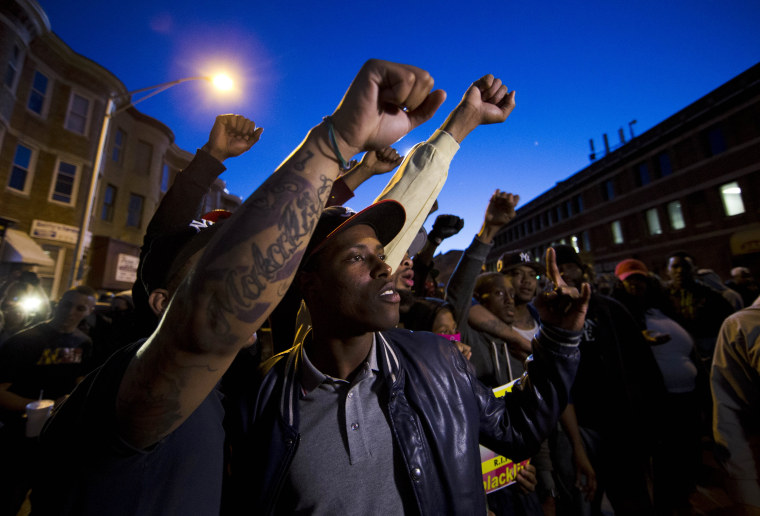In the Souls of Black Folk W.E.B DuBois coined the term: Double consciousness.
It is a peculiar sensation, this double-consciousness, this sense of always looking at one’s self through the eyes of others, of measuring one’s soul by the tape of a world that looks on in amused contempt and pity. One ever feels his two-ness,—an American, a Negro; two souls, two thoughts, two unreconciled strivings; two warring ideals in one dark body, whose dogged strength alone keeps it from being torn asunder.
DuBois put into prose the internal melee that has black folks at once loving America, and its appearance of opportunity and justice, whilst at the same time despising it for that very fallacy.
The appearance of opportunity and equality, are not the same thing as actually being equal and having opportunity.
Over the past few years we’ve borne witness to the deaths of too many young black men, women and children. We’ve watched as they went from fathers, mothers, sisters, friends, sons, daughters, husbands, wives and lovers… to hashtags.
#TrayvonMartin, #JordanDunn, #JohnCrawford, #RekiaBoyd, #RenishaMcBride, #TamirRice, #MichaelBrown, #EricGarner, #WalterScott… and now, #FreddieGray. These are the names that occupy the growing cohort of black lives that mattered, but that were nonetheless violently taken from their communities and loved ones through state sanctioned violence.
If you are white and are feeling the slightest bit oppressed than you can bear the name revolutionary. When you decide to buck the system—if you are black, brown, LGBT or any other form of perceived “other” you’re a troublemaker, a degenerate, or a thug.
With each life taken there have been calls to peacefully protest. With each body that lay in the street, on the grass, in the playground, along the sidewalk, on the front porch and in a store—black people, have been told to “stay calm” and not “lose their heads”. They’ve been lectured about the legal process and told that nothing good comes from friction. I vehemently disagree.
Friction is where change happens.
Revolutionaries versus rioters—is just a matter of perspective and privilege.
From the Tea Party to the Race “Riots” of the 60s to the Stonewall “Riots” and beyond, change always follows great upheaval, and as Dr. Martin Luther King Jr. once said, “riots are the language of the unheard.”
So, how many not guilty verdicts did we think the black community was going to quietly absorb as their pain goes unnoticed? How many unnecessary funerals were we going to watch on cable news with black families grieving before a breaking point was reached?
The historical lesson being learned is that if you are white and are feeling the slightest bit oppressed than you can bear the name revolutionary. When you decide to buck the system—if you are black, brown, LGBT or any other form of perceived “other” you’re a troublemaker, a degenerate, or a thug.
As a black lesbian who occupies one body with three souls—black, lesbian and American—each with varied understanding on where America is on it’s journey to respecting the fullness of my body politic—a body comprised of three identities that have been politicized and vandalized over the course of my lifetime.
Friction is where change happens. Revolutionaries versus rioters—is just a matter of perspective and privilege.
As a black woman, I have gone to bed this week with the weight of the city of Baltimore resting heavily on my heart. Like a scene torn from the pages of our not to distant history that has me fearing for the life of my unborn children—whose skin color will make them targets upon entering this world.
As a black woman married to another black woman I awoke this week at the possibility that my marriage may soon be recognized in all 50 states of this country and the likelihood that the patchwork of protections that makeup our marriage could actually become equal to our neighbors.
Yet also painfully clear, is that as two black women living together who each make 64 cents to a white man’s $1—statistically speaking, are more likely to fall into poverty.
As a black American I woke up this week with a new Attorney General, another first for "The American Project" that would make a black woman it’s lead attorney. Understanding that her first was made possible by a lot of other black people’s last. The last breath they exerted fighting for their humanity—the right to live to learn to love to just be—in the face of unrelenting bigotry and terrorism.
This week, I woke up with the painful reality those decades after W.E.B. DuBois penned Souls of Black Folks and articulated the contortionist feat black people have to navigate just to survive, that we are still breaking our bodies still trying desperately to be seen and heard.
I wake up with identities that our country places at war with one another—each fighting for the sweet victorious air of equality.
Each identity being a card that loses or gains value depending on the decade or political whim of the moment. Except being American should be my ultimate trump.

